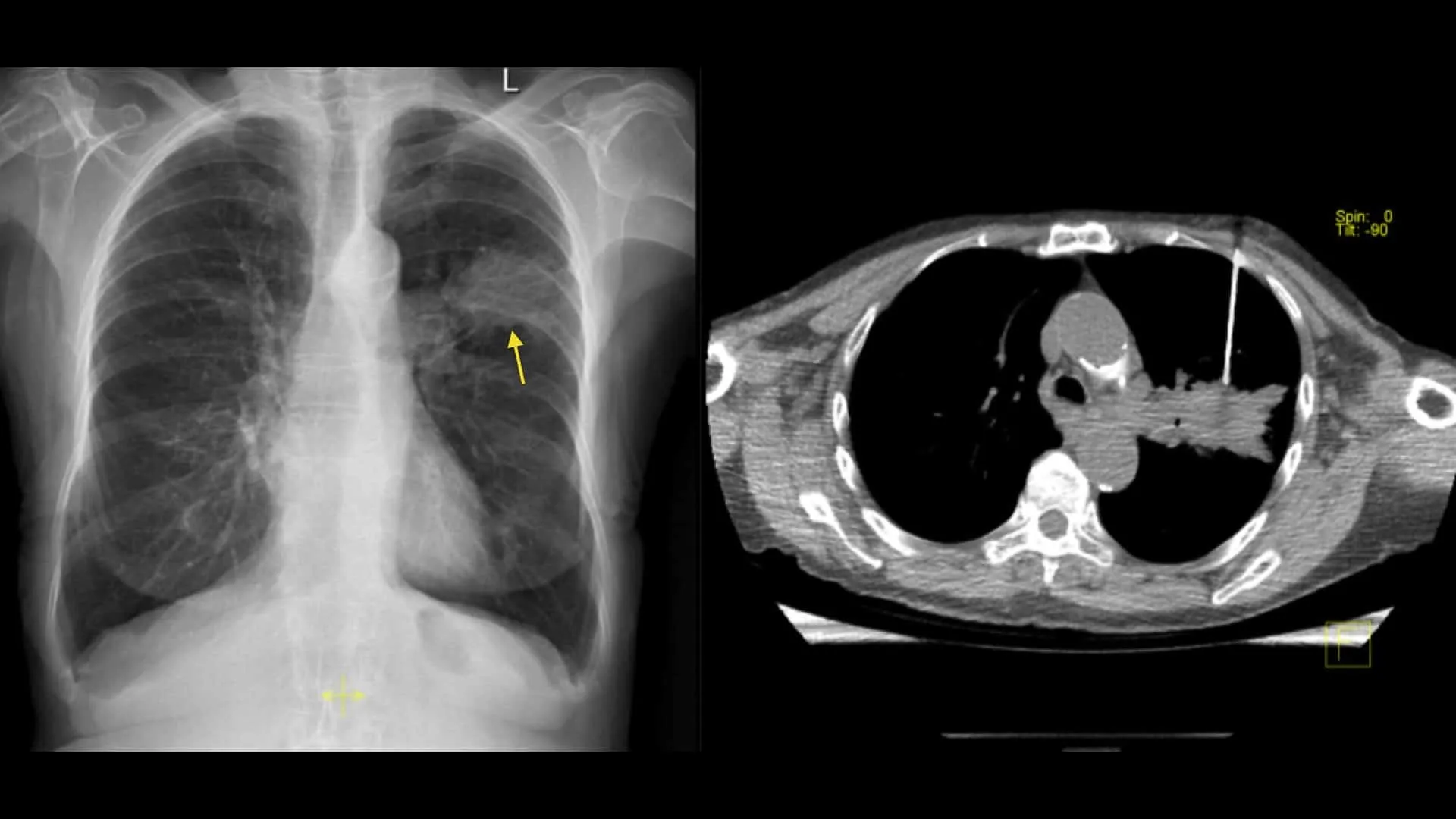CT Guided Biopsy In Nagpur
A CT guided biopsy is a minimally invasive medical procedure that uses a CT (Computed Tomography) scanner to help doctors locate abnormal tissue and extract a small sample for laboratory testing. This technique is particularly useful for biopsies of internal organs, bones, or masses that are difficult to access through traditional biopsy methods.
By leveraging CT imaging, the procedure ensures pinpoint accuracy, reducing the risk of complications and increasing diagnostic success. CT guided biopsy is commonly performed to diagnose cancer, infections, or inflammatory diseases.

What is a CT Guided Biopsy?
A CT guided biopsy involves the following steps:
A CT scanner is used to visualize the precise location of the abnormal tissue.
A biopsy needle is carefully inserted through the skin to the targeted area.
A small tissue sample is collected and sent to a pathology lab for analysis.
This technique is commonly used for biopsies of the lungs, liver, kidneys, adrenal glands, pancreas, spine, and deep lymph nodes. It is often preferred when:
The lesion is deep inside the body
The abnormal area is close to vital organs or blood vessels
Previous non-invasive diagnostic methods have been inconclusive
Indications: Why CT Guided Biopsy is Done
CT guided biopsies are essential for diagnosing a range of conditions, including:
Lung Cancer or Pulmonary Nodules
Liver Tumors or Hepatitis Diagnosis
Abnormal Kidney Function or Masses
Bone Lesions or Metastasis
Pancreatic or Retroperitoneal Tumors
Lymphadenopathy (enlarged lymph nodes)
Benefits of CT Guided Biopsy
High Accuracy: CT imaging ensures real-time visualization for precise needle placement.
Minimally Invasive: Smaller incision, less pain, and quicker recovery.
Outpatient Procedure: Many CT guided biopsies are done on the same day without hospitalization.
Low Risk: Fewer complications compared to open surgical biopsy.
Fast Diagnosis: Tissue samples can be analyzed quickly to start appropriate treatment.
Pre-Procedure Preparation
1. Medical Assessment
Detailed history and physical examination
Review of recent imaging reports
2. Laboratory Tests
Blood clotting profile (PT, INR, Platelets)
Renal function tests
3. Medication Review
Blood thinners like aspirin or warfarin may need to be stopped.
Patients should inform the doctor of any allergies or chronic conditions.
4. Fasting
Typically, fasting for 4-6 hours is recommended if sedation or anesthesia will be used.
5. Informed Consent
Patients are educated on procedure details, benefits, and potential risks.
Conclusion
A CT guided biopsy is a safe, precise, and effective method for diagnosing a wide range of diseases. From early detection of cancer to evaluation of organ dysfunction, this imaging-assisted biopsy offers immense diagnostic value with minimal risk. book an appointment at Nobel Imaging and Diagnostic for a medical test
In some cases, a contrast dye may be injected to enhance the visibility of certain tissues or blood vessels. If needed, our staff will discuss this with you beforehand. Contact Us
